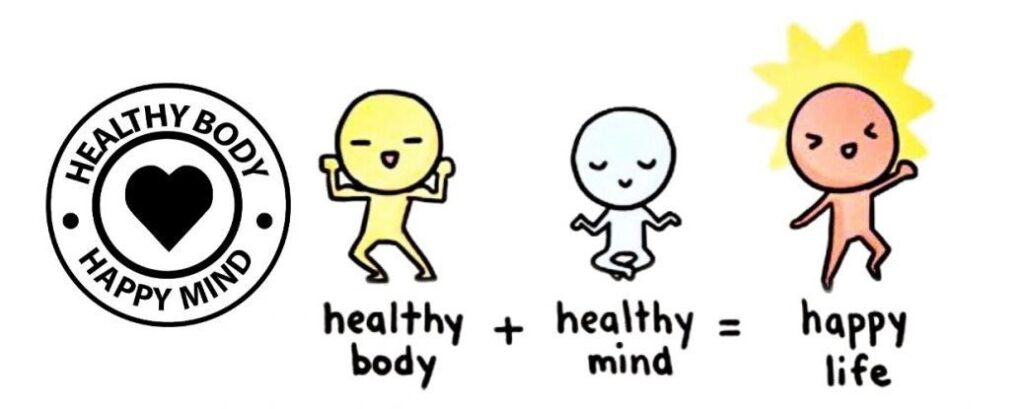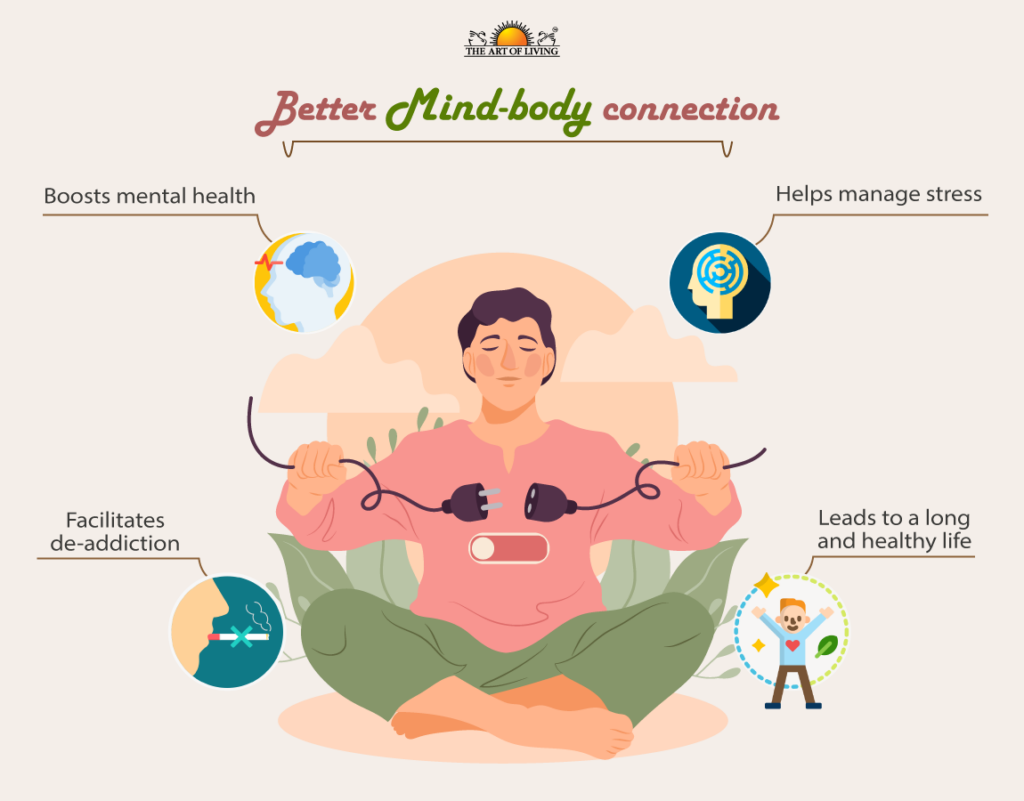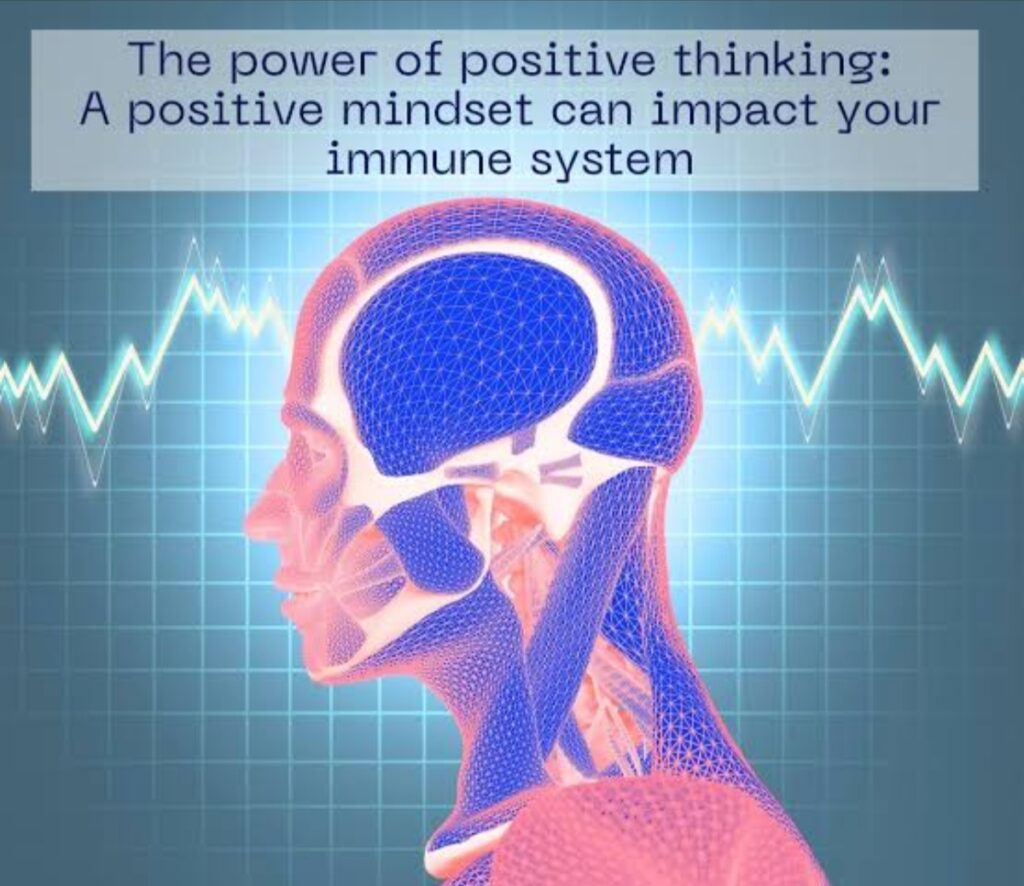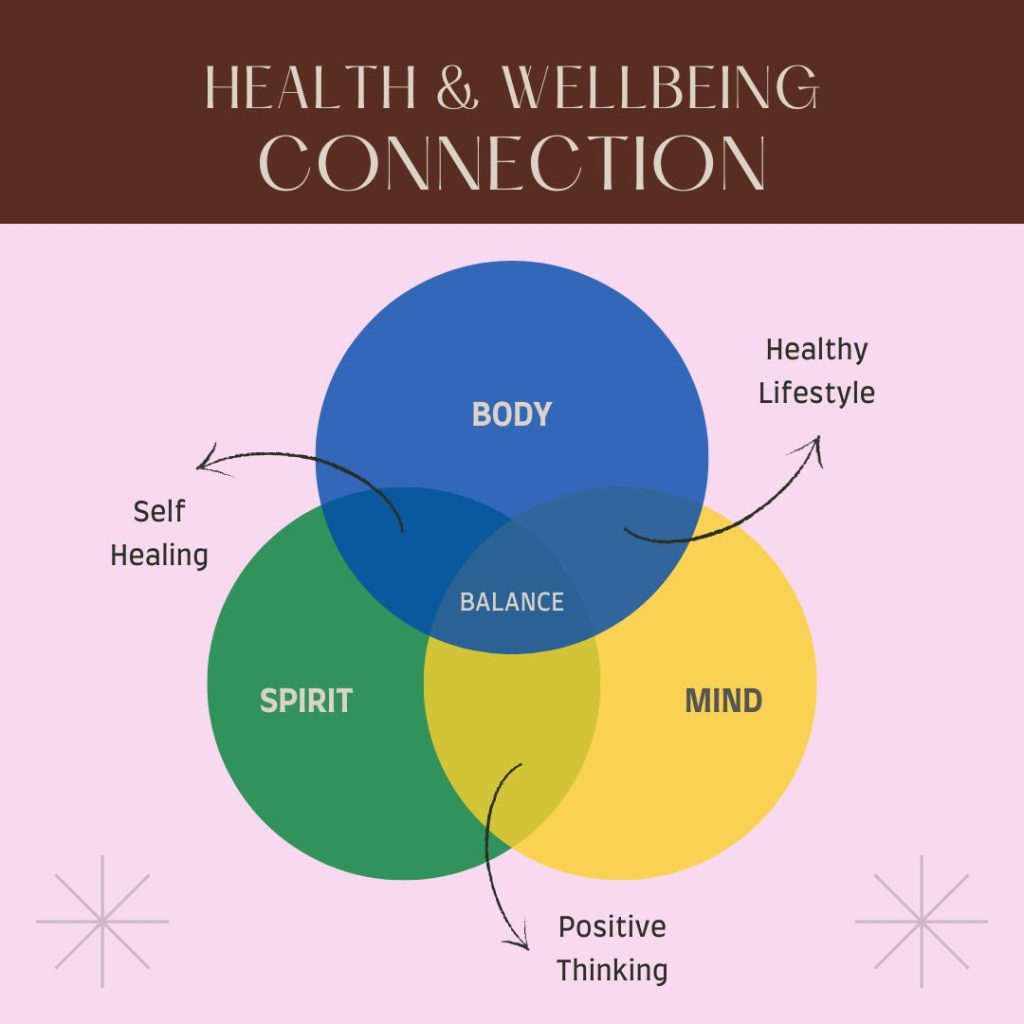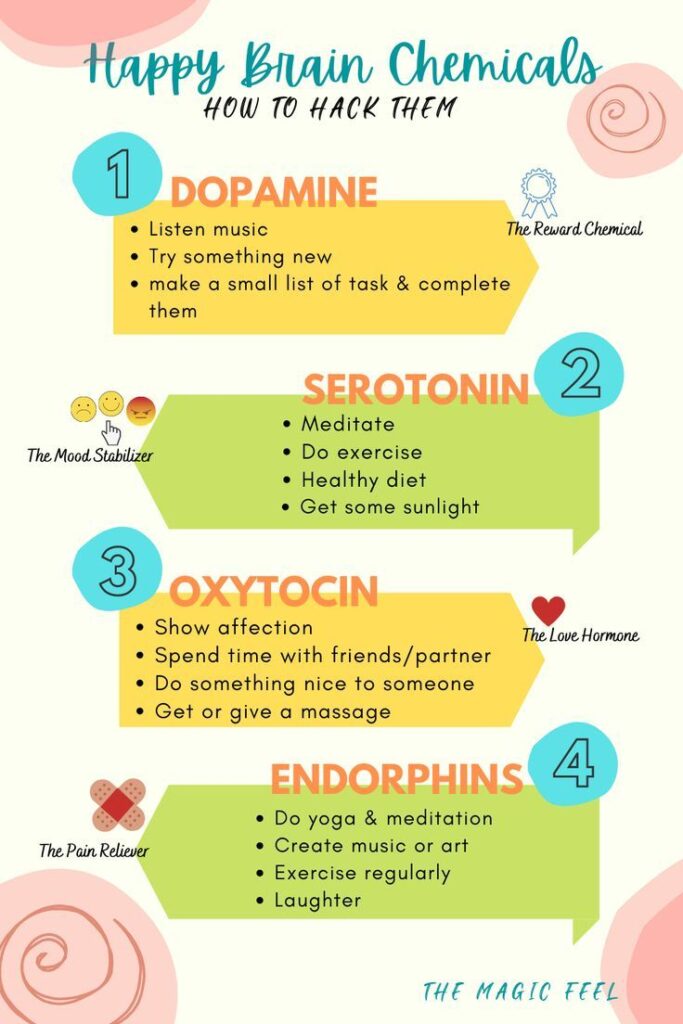THE POWER OF POSITIVE THINKING IN HEALTH AND HEALING
The Power of Positive Thinking in Health and Healing
Positive thinking has grown to be a powerful force in the world of health and healing, attracting the attention of scientists, doctors, and anybody seeking holistic well-being. This article explores the intricate connections between positive thinking and several aspects of health, such as how it affects behavior, psychology, and physiology. In recent decades, the public and scientific community have both become more aware of the connection between mental health and positive thinking. As evidence that suggests a person’s mental state might influence their physical health has grown, studies examining the connection between positive thinking and health outcomes have multiplied. This study investigates the many ways—beyond straightforward correlations—in which an optimistic mindset may support healing processes.
•Mind-Body Connection in Healing
Positive thinking is essential in promoting the interconnectedness of the mind and body, which is a fundamental component of the healing process. Positive thinkers may have a constructive conversation with their physical and mental states when they face health challenges. By recognizing that mental and emotional health are essential elements of the total healing process, this conversation fosters an atmosphere that is supportive of recovery.
The importance of treating a patient’s physical and mental well-being is something that medical practitioners are starting to realize more and more. Integrative methods that take the mind-body link into account stress how crucial it is to develop a positive outlook in order to promote recovery. This holistic approach recognizes the significant influence of mental attitudes on the course of rehabilitation, going beyond traditional medical therapies.
•Reducing Stress and Thinking Positively
Stress reduction stands out as a key process by which positive thinking impacts health. It is commonly known that prolonged stress may lead to a number of health concerns, such as immune system deficiencies, heart difficulties, and mental health disorders. Preventive health actions may be possible since cultivating good attitudes has been associated with a decrease in stress levels.
People who develop a positive mentality frequently notice a change in perspective that makes it easier for them to deal with the difficulties of life. This change has consequences for how the body responds to stress. Research indicates that those who are more optimistic than pessimistic may have lower levels of cortisol, a hormone linked to stress. Positive thinking creates the conditions for better general health by lessening the negative effects of stress.
•Optimism and Immune Function
Beyond lowering stress, it seems that positive thinking has a significant impact on the immune system. Studies indicate a relationship between a positive perspective and improved immune response. A complex network of cells and proteins, the immune system is essential to the body’s defense against infections and illnesses. Those with an optimistic outlook may benefit from enhanced immune cell production and greater activity of natural killer cells, which will strengthen the body’s defenses.
The relationship between immunological function and optimism highlights the connection between mental and physical health. Positive thinking can be seen as an adjunct that supports the body’s innate ability to fight off illnesses, even though it is not a cure-all. This supports the idea that both physical and mental resilience are positively correlated, with a strong immune system resulting from a healthy mind.
•Lifestyle Choices and Positive Thinking
Positive thinking has an impact on more than just the mental and physical domains; it also influences lifestyle decisions that have a significant impact on general health. Optimistic people are more likely to practice healthy habits like eating a balanced diet, exercising frequently, and getting enough sleep. This correlation implies that thinking positively could act as a motivating factor, encouraging people to make decisions that improve their well-being.
The connection between positive thinking and healthy behaviors creates a cycle of positivity. Taking part in activities that benefit physical health helps to enhance positive thinking by promoting a feeling of achievement and happiness. This mutual connection emphasizes the power of having a positive attitude in driving a healthy lifestyle, establishing a strong base for continued well-being.
•Coping with Chronic Conditions
When dealing with long-term illnesses, the ability to think positively can be a helpful coping strategy. Despite not being a replacement for medical measures, keeping a positive mindset may greatly enhance the quality of life for persons dealing with health issues. People who practice positive thinking are more resilient and hopeful as they negotiate the emotional challenges of long-term diseases.
Positive thinking cultivates psychological resilience, which enables people to approach adversity with a proactive perspective. In the face of health-related concerns, this proactive strategy entails looking for answers, adjusting to new situations, and retaining a sense of agency. Adopting an optimistic outlook helps people manage the psychological effects of long-term illnesses, improving their capacity to confront obstacles head-on.
•Neurotransmitters and Biochemical Responses
Strong evidence points to the release of hormones and neurotransmitters linked to pleasure and wellbeing when one experiences positive emotions. Beyond just elevating mood, positive thinking can also alter biochemistry in a way that may directly and favorably impact physiological processes. Often called “feel-good” hormones, endorphins are released during happy experiences that help people feel happier and perceive less pain.
Positive emotions also have an impact on serotonin, a neurotransmitter connected to mood regulation. Serotonin release improves mood, but it may also have more significant effects on physical health. The complex relationship between neurotransmitter activity and positive thinking offers insight into the complex relationships between mental and physical mindset.
•Positive Thinking: A Proactive Approach
It is important to make clear that positive thinking does not support downplaying denying difficulties. Instead, it motivates people to face challenges with a positive outlook. This proactive strategy entails accepting a resilient mindset, looking for solutions, and admitting difficulties. Positive thinking gives people the ability to confront and overcome obstacles by reinterpreting adversity through the lens of possibility.
Being a catalyst for behavioral change is one way that positive thinking demonstrates its proactive nature. Adopting behaviors that promote health is more likely when people have confidence in their ability to bring about positive changes. This empowerment fosters a proactive approach that goes beyond mental health and permeates lifestyle decisions, giving one a sense of control over their health.
To sum up, the influence of optimistic thinking on well-being and recovery is a complex and diverse phenomenon with wide-ranging consequences. Positive thinking is shown to be a powerful tool for promoting holistic well-being, with benefits ranging from immune system support and stress reduction to lifestyle modification and the development of the mind-body connection. As our knowledge of the complex relationship between mindset and health expands, incorporating positive thinking into medical procedures may open up new possibilities for preventing diseases and complimentary modalities to traditional therapies. A positive outlook not only increases personal resiliency but also advances the larger narrative of building a society that places a high value on mental and physical health.

















